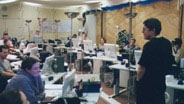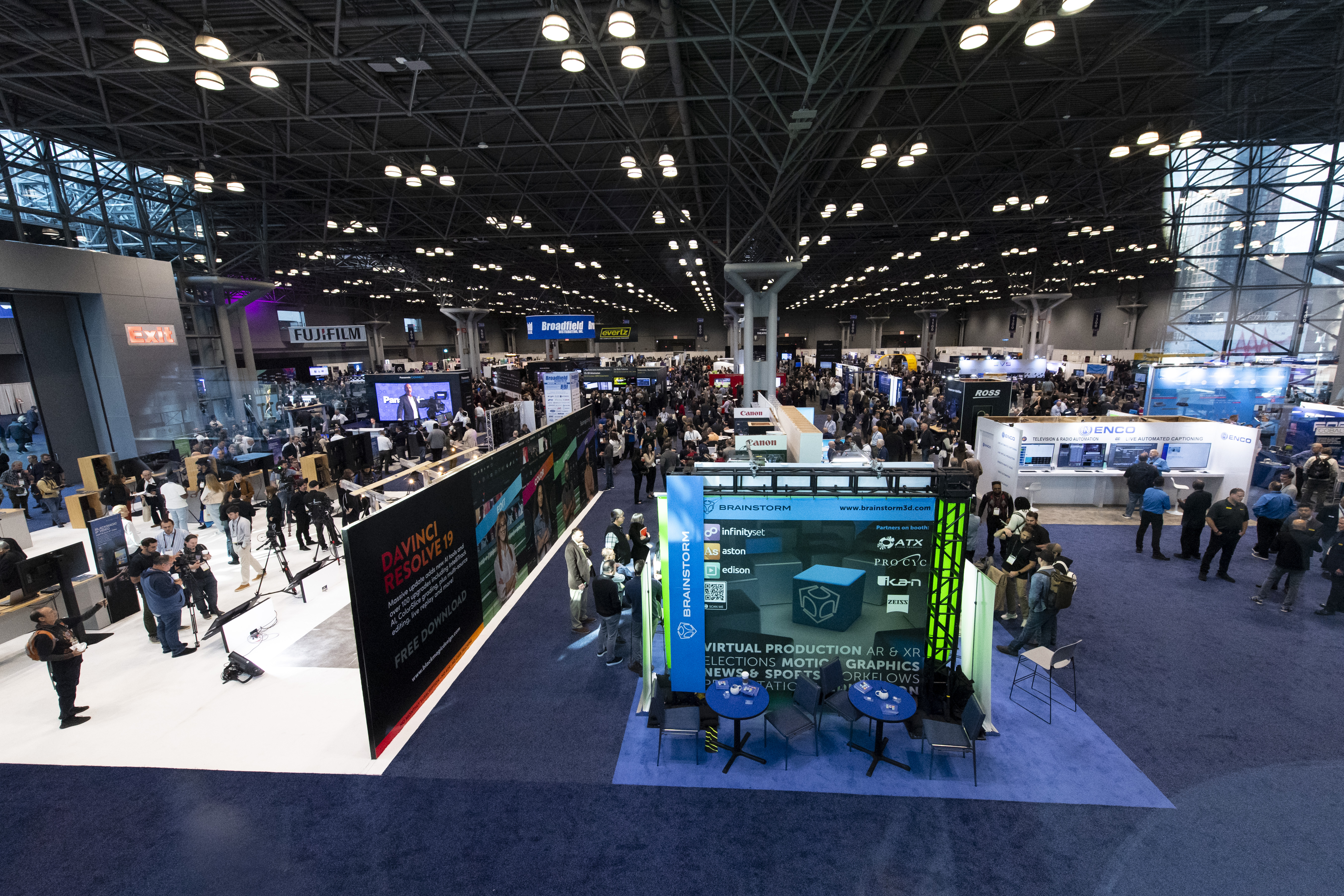Video journalists extend reach of BBC without adding costs
The BBC is in the process of a major transformation in the way it gathers news footage from across England, Wales, Scotland and Northern Ireland, turning away from traditional two- or three-person ENG crews and embracing the concept of the “video journalist” (VJ) – a single field reporter who writes, reports, shoots and edits stories alone.

Fifty-five journalists learn how to write, shoot and edit news stories by themselves during the BBC's three-week video journalist boot camp.
The change is an attempt to “build television along the lines of a newspaper operation” in the words of consultant Michael Rosenblum. “We want to take them out of the newsroom and put them in the field where they can gather news,” he said.
Four years ago, Rosenblum was addressing the News World conference in Barcelona, Spain, explaining his concept of the VJ and his experience implementing it at NY1 in Manhattan, when he caught the attention of the BBC. After a year of demonstrations and presentations, Rosenblum convinced the BBC that it could improve its efficiency by turning to VJs.
So far, 55 BBC journalists have completed Rosenblum’s VJ boot camp, an intensive three-week training program where reporters are trained to shoot and edit their own stories.
“At the boot camp, we isolate 25 to 30 people,” said Rosenblum. “We put them in a hotel, and they live and work together for three weeks,” he said. “They learn to use the camera and the basics of editing on Monday. The second day is straight cuts on the timeline, and they progress from there.”
Every evening, the boot camp participants gather to screen their work from the day, something Rosenblum calls his nightly “public humiliation session.” But through the process of education, shooting, editing and critiquing, participants are “ready to use everything by the end of three weeks.”
The professional video industry's #1 source for news, trends and product and tech information. Sign up below.
At the BBC, that means using the Sony DSR PD150 DVCAM and a variety of non-linear editing software, including Apple Computer’s Final Cut Pro, Pinnacle Systems Liquid Purple and Avid editing applications.
The goal of the transition to VJs is efficiency. “We find that we can cut the cost of production 20 to 70 percent,” said Rosenblum. “But I wish to be very clear on this. No one is being fired by the BBC.”
Rather, Rosenblum explained, the VJ approach is broadening the BBC’s reach and as a result reducing the cost of newsgathering. “It’s not about buying equipment and operational costs in the field,” he explained. “It’s all about the cost of goods. How much does it cost to put a minute of video on the air every day?"
